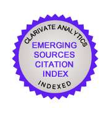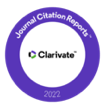La reconstrucción familiar como método de investigación histórica: El caso de estudio de la familia Durán-Leal en el contexto de la Guerra Civil y el Exilio (1936-1940)
DOI:
https://doi.org/10.22530/ayc.2024.25.728Palabras clave:
Testimonios, tradicióon oral, documentación, fotografía, historias familiaresResumen
Este trabajo plantea la reconstrucción de una crónica familiar que tres investigadores han recuperado en un proyecto que dio comienzo en el año 2018. En las investigaciones suceden, en ocasiones, hechos no pretendidos, accidentales o mágicos que, como cualidad propia del azar, transforman la narrativa de un relato inicial. Situaciones que como serendipias caen en las manos apropiadas para contextualizarlas en el espacio y en el tiempo. De una historia excepcional, sumergida en los tiempos de la Guerra Civil Española y el exilio, emergen los personajes que hoy arrojan luz a un relato de gran valor documental. Los investigadores, movidos por la fascinación y por un cierto sentido del deber con la memoria, comenzaron el arduo cometido de documentar, interpretar y desvelar a partir de textos, cartas y fotografías extraídas de numerosos archivos nacionales e internacionales, la significativa travesía de la familia Durán-Leal en un marco sociopolítico diferenciado por la tragedia y por un forzado exilio que motivó la huida de miles de familias al destierro.
Desde una narrativa que enlaza el testimonio con la argumentación documental, se trazó una historia personal que es también la historia de España, la guerra y el exilio a México, enfocado en las figuras de Josefina Leal y Expédito Durán, en su interacción con el contexto sociopolítico de Europa y América y en las reveladoras relaciones con destacados personajes de la cultura, la política y el arte de estos dos continentes, singularizados por escenarios antagónicos.
El marco teórico y metodológico del proyecto se apoya en el análisis e interpretación de testimonios orales y fondos documentales consultados, lo que dio lugar a la creación de una línea espacio-temporal sobre la cual se construye una narrativa biográfica. Más allá de análisis exclusivamente formales, este trabajo se respalda en numerosos documentos e imágenes que atesoran el interés por el contenido, donde la anécdota se transforma en historia a través de la deconstrucción documental, en la que cada hallazgo es una ventana infinita al pasado. Así, en la magia del instinto y en la lógica del discurso creció la responsabilidad de contar este relato y exponerlo en un espacio de reflexión sobre la memoria, el tiempo, el arte y la identidad.
Citas
ALTED VIGIL, Alicia (1997): “El exilio republicano español de 1939 desde la perspectiva de las mujeres”. Arenal. Revista de historia de las mujeres, Granada, vol.4, núm.2, pp.223-238.
ALTED VIGIL, Alicia (2005): La voz de los vencidos. El exilio republicano de 1939. Madrid, Aguilar.
DEVAUX, Dominique (1997): “Les archives de la direction de la Sûreté rapa-triées de Russie” La Gazette des archives, nº 76, 1997, pp.78-86.
www.persee.fr/doc/gazar_0016-5522_1997_num_176_1_3455
EIROA, Matilde (2010): «La embajada de Praga y el servicio de información de Jiménez de Asúa» pp. 233-234, Capítulo (VII) en Ángel VIÑAS (dir.) Al Servicio de la República. Diplomáticos y Guerra Civil, Marcial Pons y Mi-nisterio de Asuntos Exteriores, pp. 207-240.
FEBVRE, Lucien (1982): Combates por la historia, Barcelona, Ariel.
GALÍ, Jordi (2016): Alcaldes de Girona 1931-1939, Expèdit Duran i Fernández, Girona.
IORDACHE, Luiza y Negrete (Coord. (2021): Mujeres en el exilio republicano de 1939 (Homenaje a Josefina Cuesta) Ministerio de la Presidencia, Relaciones con las Cortes y Memoria Democrática, Madrid.
IORDACHE, Luiza (2019): “Españoles tras las alambradas. Republicanos en los campos franceses, nazis y soviéticos (1939-1956)”. Hispania Nova, nº 1 extraordinario, 2019. pp. 19-65
L’INDEPENDANT (15/2/1939) “Les divers problèmes que soulève le séjour des réfugiés espagnols; Deux anarchistes évadés d’un camp de concentration vivaient largement à Marseille”. Archives Municipales Camille Fourquet, Perpignan. A230172/ D230173.
MARTÍNEZ LÓPEZ, F; “Los andaluces en el exilio del 39”. Centro de Estudios Andaluces, Cuadernos de Andalucía en la Historia Contemporánea, Sevilla, 2014, pp. 136-137.
MORADIELLOS, Enrique (2015): “El exilio republicano español de 1939, una ponderación historiográfica”, Revista de Estudios Extremeños, Tomo LXXI, Número III, 2015, pp. 1991-2006.
MORENO VILLARREAL, J. (2021): Frida en París, 1939. Turner, Madrid, pp. 189-202.
PÉREZ RODRÍGUEZ, Jonay (2022): “Los indeseables españoles. La gestión de los refugiados en Francia (1936-1945)”, Centro de Estudios Políticos y Constitucionales, Madrid, pp. 104-271.
PETITJEAN, M. (2019): El Corazón, Frida Kahlo en París. Barcelona, Circe, p. 103.
POVEDA NAVARRO, Antonio – VALERO ESCANDELL, José R. (Coord.) (2006): Historia de Elda, Ayuntamiento de Elda, Caja de Ahorros del Mediterrá-neo.
ROLDÁN CAÑIZARES, Enrique (2019): “Luis Jiménez de Asúa. Derecho penal, República y Exilio”, Dykinson S.L., Madrid.
VELÁZQUEZ HERNÁNDEZ A. (2012): “El exilio español en México. Integración económica y organismos de ayuda”, en IBARRA AGUIRREGABIRIA, A. (coord.), No es país para jóvenes, Vitoria, Instituto Valentín Foronda, pp. 2-18.
VELÁZQUEZ HERNÁNDEZ A. (2010: “La diplomacia mexicana: ¿Agente al servicio del exilio español? Las relaciones entre diplomáticos mexicanos y los organismos de ayuda a los republicanos españoles (1939-1942)”, Aso-ciación de Historia Actual, Número 22, p. 11.
Descargas
Publicado
Cómo citar
Número
Sección
Licencia
Derechos de autor 2024 ARTE Y CIUDAD. Revista de Investigación

Esta obra está bajo una licencia internacional Creative Commons Atribución-NoComercial 4.0.











